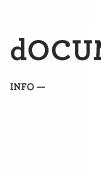ENGLISH
Alexei Penzin: SLEEP, SUBJECTIVITY, AND ARTWORK
In the history of thought, the phenomenon of sleep is rather marginal or treated negatively. It is perceived as something, which disconnects human beings from any ties with Logos, Reason, or from an ideal rational structure of a society and its relations of production, power and communication networks. But we can detect a minor line in philosophy, which, since Aristotle’s introduction of category of “potentiality” in his Metaphysics, ascribes to sleep a specific bio-ontological value. This line acquires more consistency in the modern thought, when, since Hegel, sleep is ambivalently tied with the problem of subjectivity. Following this Hegelian perspective, sleep and awakening can be considered as degré zéro of subjectivity formation. 20th century and contemporary thought is more attentive to sleep (Walter Benjamin, Emmanuel Lévinas, Jean-Luc Nancy, etc.). At the same time, modern capitalism, focused on labor force, living body of worker and its management (biopolitics), takes sleep as unstable limit of its productivity, which it permanently attempts to conquer, stimulating rapid growth of empirical research on sleep processes. The constitutive dimension of sleep, subjectivity and biopolitics is of key importance for thinking on conditions of contemporary art, what I will try to expose in the end of my lecture and during the seminar.
Under the direction of the German philosopher Christoph Menke and in collaboration with Chus Martínez, the seminar What is Thinking? Or a Taste that Hates Itself is a series of twelve two-part sessions focusing on the relationship between art and philosophy, between thinking and perceiving. It is an attempt to address the questions and the methods of philosophy for those who are curious but not necessarily close to the field. Each session is divided into a public lecture every Monday evening in the Ständehaus, followed by a more intimate discussion seminar on Tuesday mornings in the Zwehrenturm of the Fridericianum.
In September 1959, the philosopher Theodor W. Adorno gave a lecture on the occasion of documenta 2. A few days earlier, he had mentioned in a letter to Max Horkheimer his interest in visiting the exhibition, in seeing what culture—art—could do after the greatest collapse that the country and the world had ever experienced. This lecture, "The Idea of New Music” (Die Idee der neuen Musik), is of key significance to dOCUMENTA (13). It is read and commented upon by Albrecht Wellmer at the opening of the exhibition and by Carla Harryman at the end, as the inspiration and source for a reflection on the importance of deeds, like art, and thoughts, like philosophy, that are less driven by aims and results, than guided by values.
The What is Thinking? seminar is a rigorous meditation on language, on meaning, on the limits and possibilities of skepticism, on imagination as the ground for social democracy, and on art and experience. It aims to contribute to an understanding of the importance of an art exhibition with the history and tradition of documenta, as a crucial space for the community to respond to questions of ethical and aesthetic significance.
The seminar sessions can be attended individually or in full. Texts and other materials for the sessions are available online.
Text(s):
Core reading:
Hegel, Philosophy of Subjective Spirit, vol. 2, Anthropology (Boston: D. Reidel Publishing Company, 1978), § 398. http://www.scribd.com/doc/92919241/G-W-F-Hegel-Philosophy-of-Subjective-Spirit-2-Antrophology-Encyclopedia-M-J-Petry
Emmanuel Lévinas, Existence and Existents, London: Kluwer Academic Publishers, 1988, p. 65-85.
http://www.scribd.com/doc/67092325/Existence-and-Existents-Emmanuel-Levinas

















